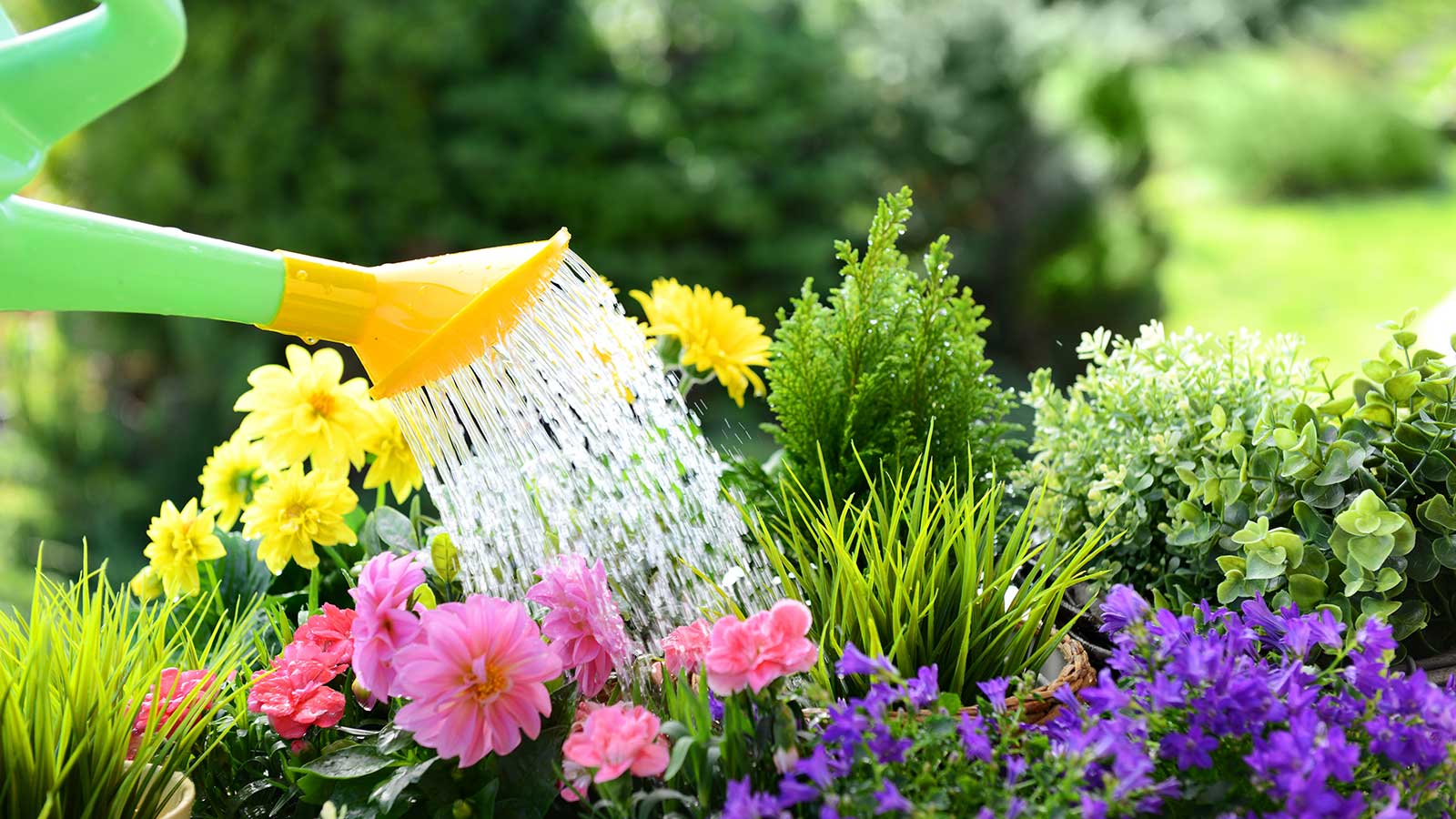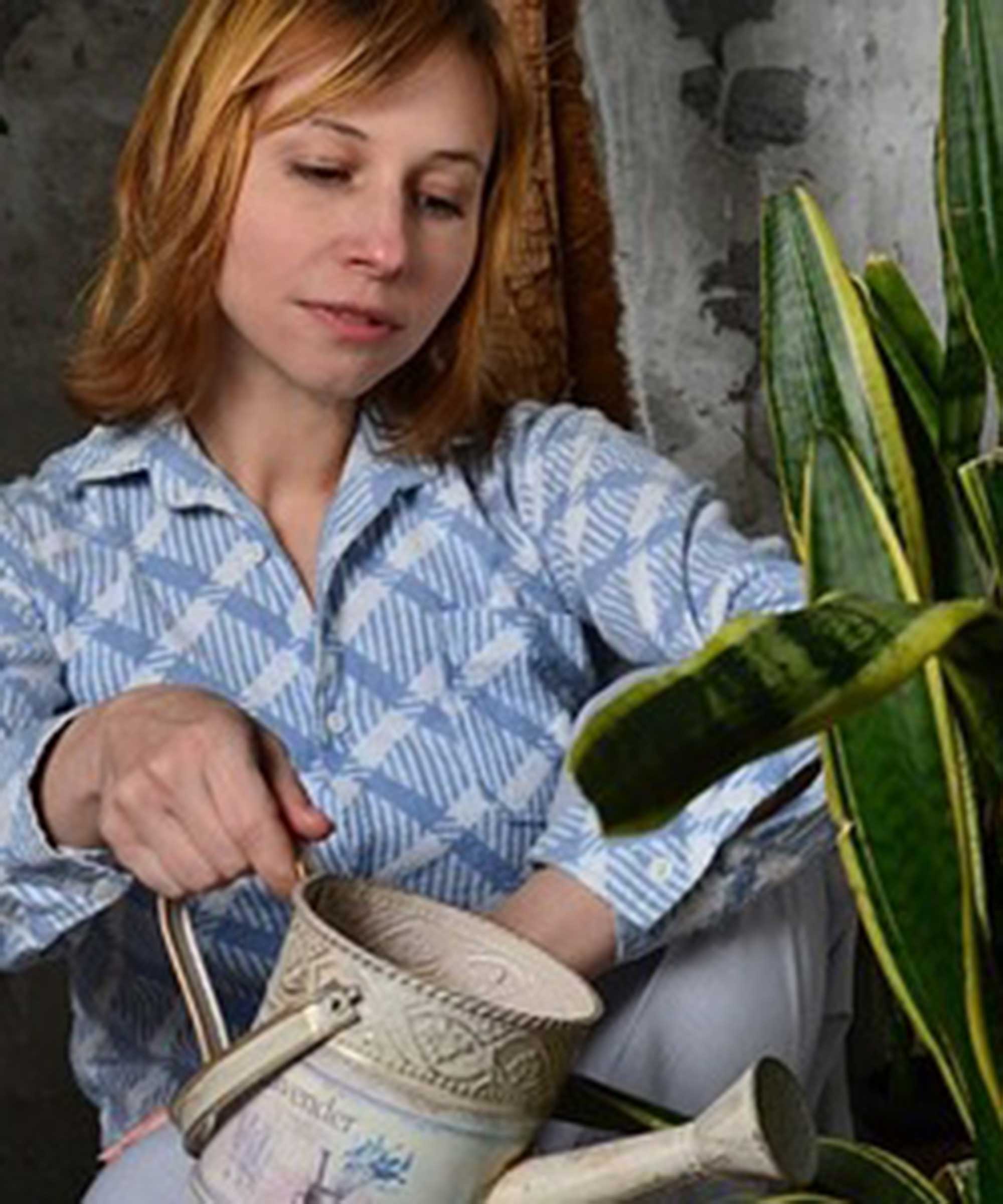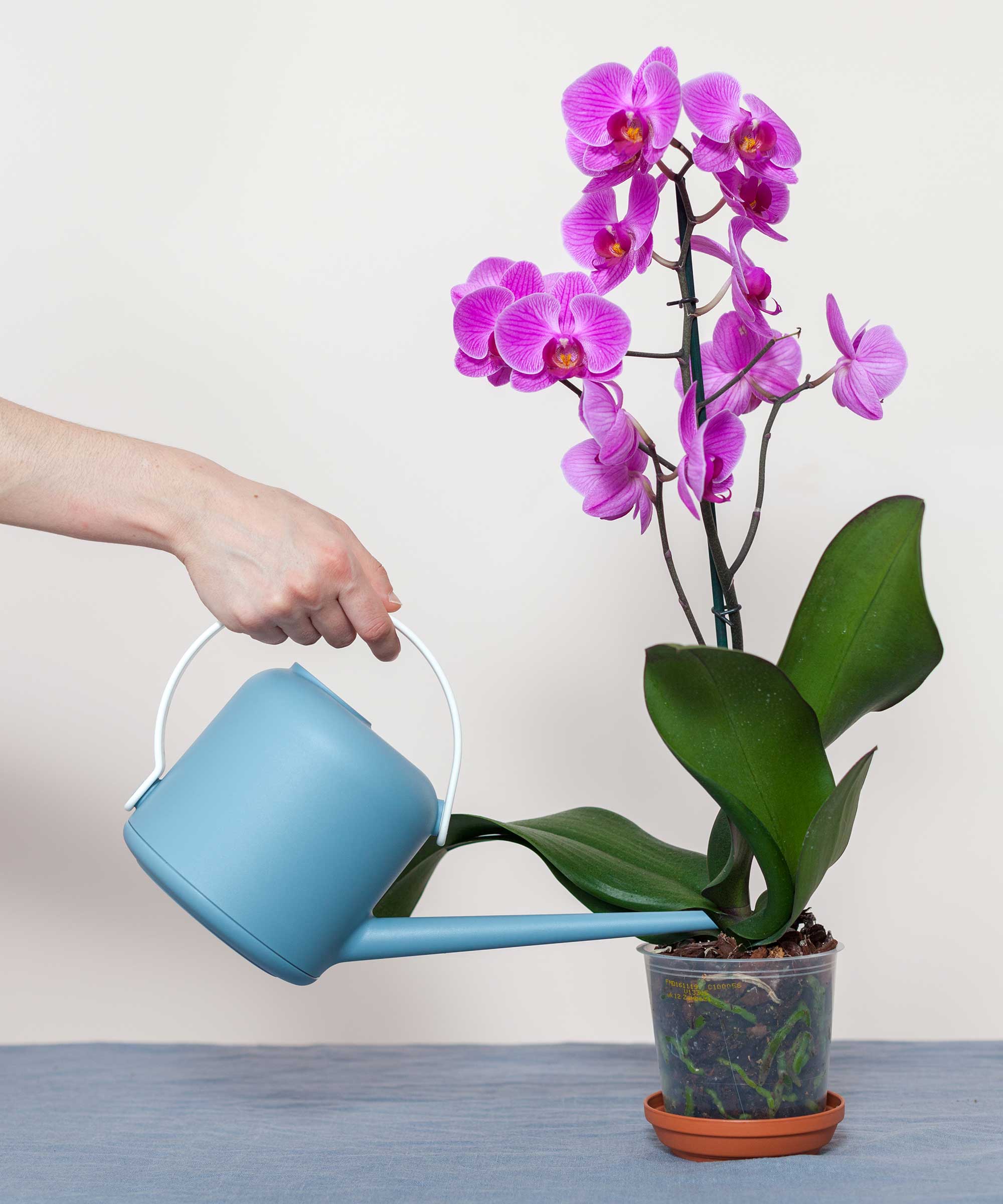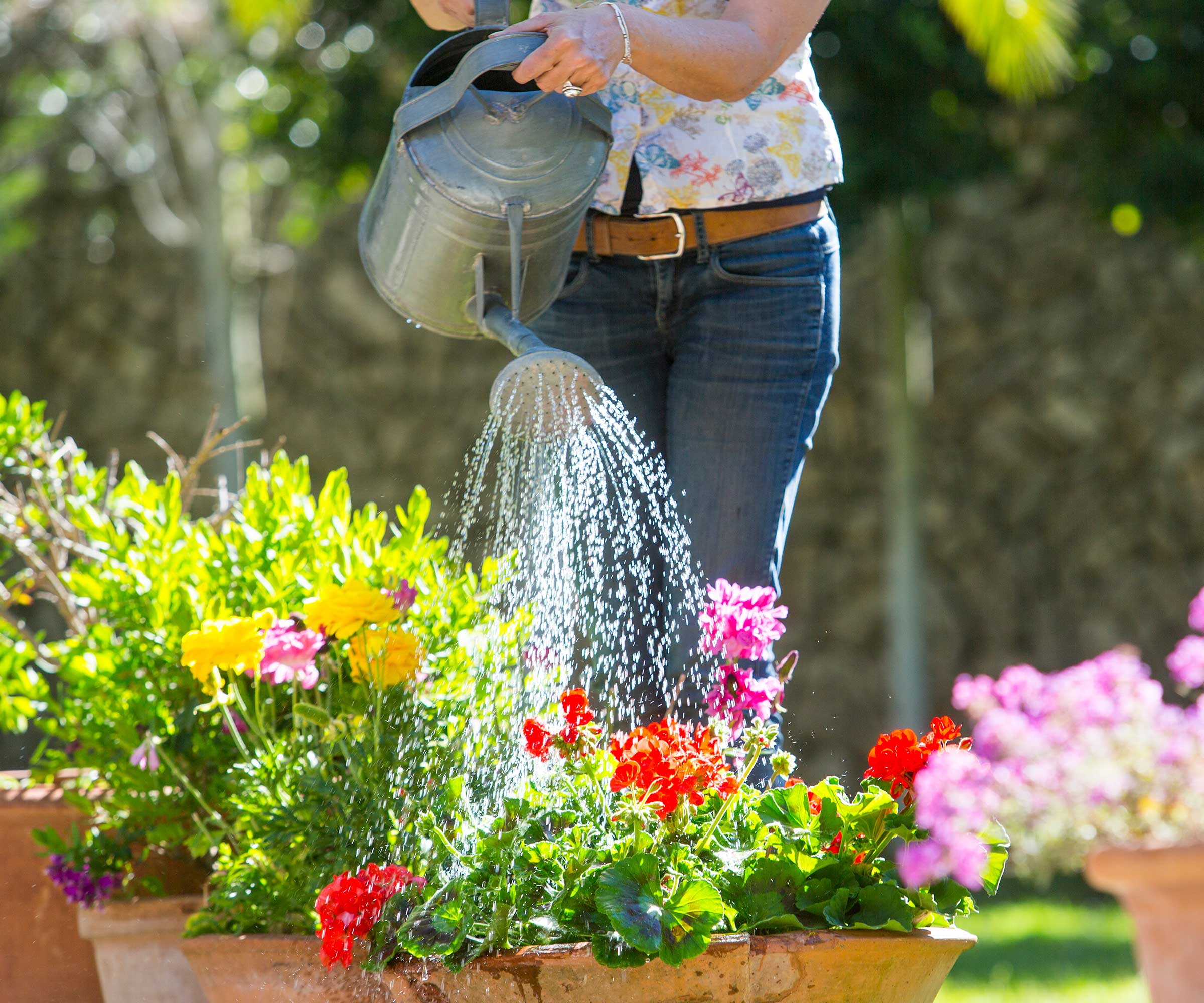Can you water plants with distilled water? The gardening experts weigh in
It may be purer than rain or tap water, but that isn't necessarily an advantage


Design expertise in your inbox – from inspiring decorating ideas and beautiful celebrity homes to practical gardening advice and shopping round-ups.
You are now subscribed
Your newsletter sign-up was successful
Want to add more newsletters?

Twice a week
Homes&Gardens
The ultimate interior design resource from the world's leading experts - discover inspiring decorating ideas, color scheming know-how, garden inspiration and shopping expertise.

Once a week
In The Loop from Next In Design
Members of the Next in Design Circle will receive In the Loop, our weekly email filled with trade news, names to know and spotlight moments. Together we’re building a brighter design future.

Twice a week
Cucina
Whether you’re passionate about hosting exquisite dinners, experimenting with culinary trends, or perfecting your kitchen's design with timeless elegance and innovative functionality, this newsletter is here to inspire
Q: I recently heard that using distilled water on plants can benefit them. Is this true? I usually use harvested rainwater, and wondered if it's worth making the switch.
A: Watering plants, as you'll already know, is a crucial part of plant care. But the type of water that you use can make a difference.
Harvested rainwater is great for plants as it doesn't contain the chemicals, such as chlorine, that tap water generally has. Plus, of course, it's a good way to practice sustainable gardening, and it's free.
Distilled water, however, is even purer than rainwater. It has been boiled, then the vapor condensed back into liquid form. This process strips it of contaminants (rainwater often has traces of pollutants from the atmosphere), minerals, and salts. According to Healthline, it is often used in medical facilities and laboratories.
So, distilled water might seem to be the best option for watering plants. But this isn't strictly the case, for a few reasons. It's expensive if you buy it in bottles, and it can be impractical to store. And, its level of purity isn't usually necessary for growing healthy plants – in fact, it can be a disadvantage. However, there are some instances where it may be preferable.

Rainwater is good for watering plants
Using distilled water on your plants
Most plants will do just fine with tap water, however, some are more susceptible to damage from it. These are generally types of potted, indoor plants. They include orchids, African violets, Boston ferns, and certain bromeliads, reveals gardening expert Diana Cox. Using rainwater is a better alternative than tap. But, if it's unavailable, you may want to consider using distilled water on these plants, instead.
'I've personally witnessed the positive effects of watering my orchids with distilled water,' Diana says. 'Since making the switch from tap water, my orchids have produced larger flower clusters and remained lush for significantly longer periods.'
Design expertise in your inbox – from inspiring decorating ideas and beautiful celebrity homes to practical gardening advice and shopping round-ups.
However, it's worth noting that because distilled water is so pure, it doesn't provide plants with the beneficial minerals typically found in natural rainwater or tap water, as Tony O'Neill of Simplify Gardening points out. This means that in most instances, you will need to use a balanced fertilizer alongside to combat nutrient deficiency in your plants. Miracle-Gro's Water Soluble All Purpose Plant Food from Amazon is a popular example.

Tony O'Neill is a gardening expert, author, and educator. With a thriving YouTube channel boasting 370,000 subscribers and over 1.4 million monthly views, along with an award-winning website SimplifyGardening.com, he shares his passion for gardening and sustainability. He has also authored Composting Masterclass, Your First Vegetable Garden, and Gardening with a Side of Science, empowering individuals to cultivate their own green spaces.

Diana Cox is the proud founder of TheGardeningTalk.com and has over a decade of gardening experience. Through her blog, she aims to inspire and motivate fellow gardeners by sharing practical techniques that are grounded in both personal experience and thorough research.

Orchids can benefit from distilled water
Where can you get distilled water from?
There are a few ways to get hold of distilled water.
'If you choose to make your own distilled water at home, the process involves boiling tap water and collecting the mineral-free steam condensation,' says Diana. You can buy a distiller, but it can ramp up your electricity bill, and it takes a long time for the whole process, says Vladan Nikolic of Mr Houseplant.
You can also collect distilled water from dehumidifiers and tumble dryers, reveals the Royal Horticultural Society. Some air conditioning units also produce it. But, make sure the water is clean, says Vladan. 'The devices get dirty over time and if the water has been sitting for a while, anaerobic bacteria can multiply.'
'Alternatively, you can conveniently purchase distilled water in gallon jugs from your local grocery store,' Diana says.

Using distilled water for all your outdoor container plants can be impractical
To put it simply, when it comes to watering plants, rainwater is the best option. So, if you have a harvested supply, stick with using that. If it runs out, distilled water can be used as a temporary alternative on your more sensitive plants. Otherwise, it's not really worth the effort.
Perhaps more importantly, remember to steer clear of the common watering mistakes, whatever type of water you choose to use. Otherwise, you risk doing more harm than good to your plants.

Holly started writing about gardening five years ago, and she is a regular contributor to Homes & Gardens. She has also written many gardening features for Woman & Home and Real Homes, too. She has previous experience as a professional gardener, where she helped to plant and maintain private gardens. Holly has also looked after allotment plots over the years and loves to grow her own flowers and veggies from seed. In her spare time, she enjoys visiting local gardens, botanical drawing, and tending to her ever-growing collection of houseplants.